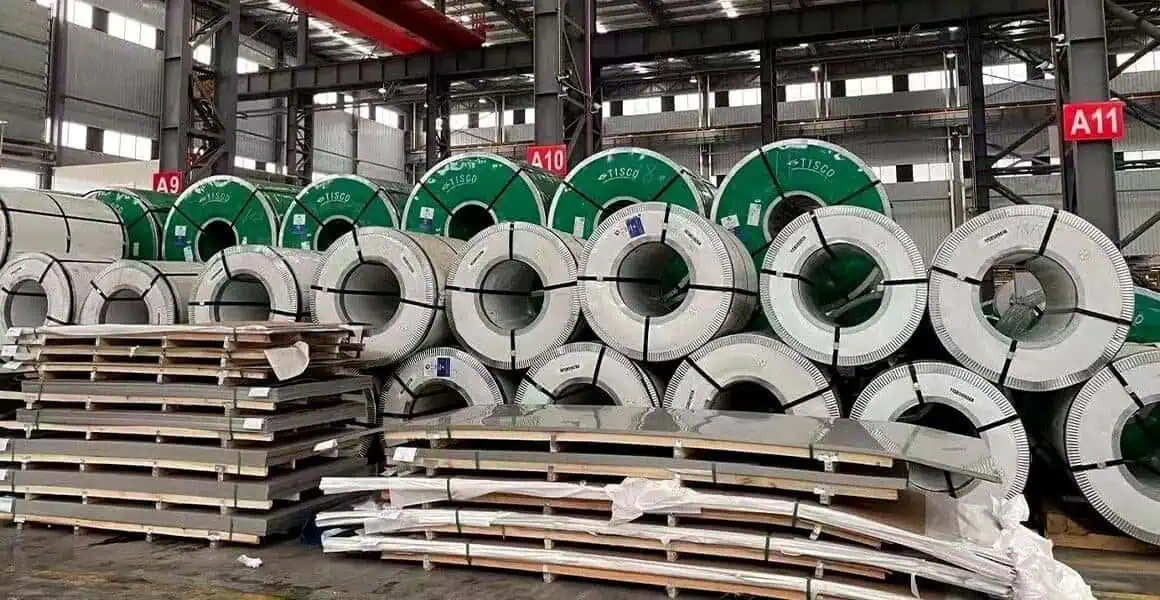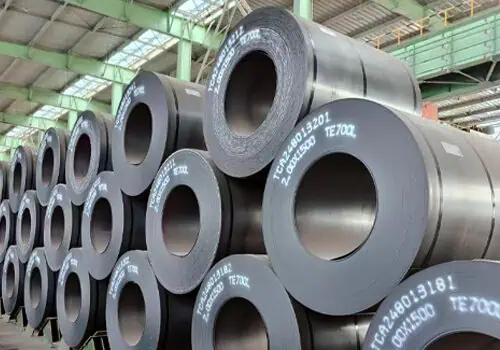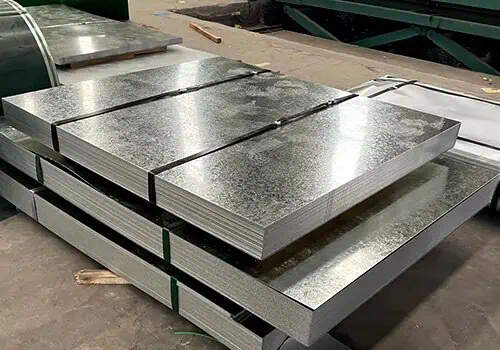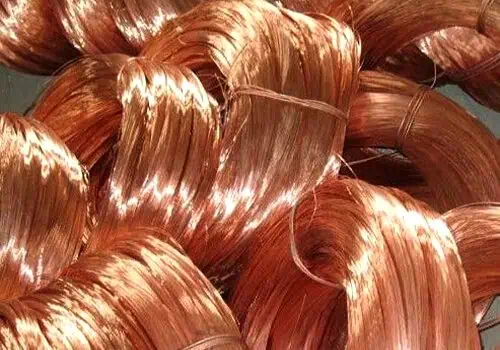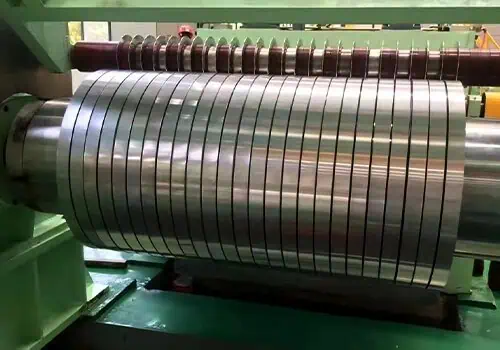Do you want to know are stainless steel coils safe?? Let’s look at hidden hazards and actual rewards so you can make informed, worry-free purchase selections.
Stainless steel coils are generally considered safe, complying with strict health, food-grade, and industrial standards. Their corrosion resistance, heat stability, and non-toxic nature make them ideal for various applications, from construction to food processing. Always ensure material certification and quality inspections to avoid potential risks.
Let’s take a closer look at some of the most important safety considerations when purchasing stainless steel coils.

What Is The Safest Coil Material?
When it comes to safety, not all coil materials are made equal. The safest coil materials are stainless steel 304 et 316 series, which are widely used in the medical and food sectors due to their non-toxic and long-lasting features.
304 acier inoxydable has high corrosion resistance in a broad range of settings, including fresh water and moderately acidic situations. It is very durable, easy to construct, et rentable, making it the preferred material for general-purpose applications.
D'autre part, 316 acier inoxydable, which includes 2-3% molybdène, has higher resistance to chloride corrosion, making it the preferred material for maritime settings and very acidic industries. Buyers interested in applications such as chemical tanks, machinerie de transformation des aliments, or pharmaceutical equipment might choose 316 acier inoxydable.
En outre, for essential applications, low-carbon variants like as 304L and 316L limit the danger of intergranular corrosion following welding, assuring long-term structural stability.
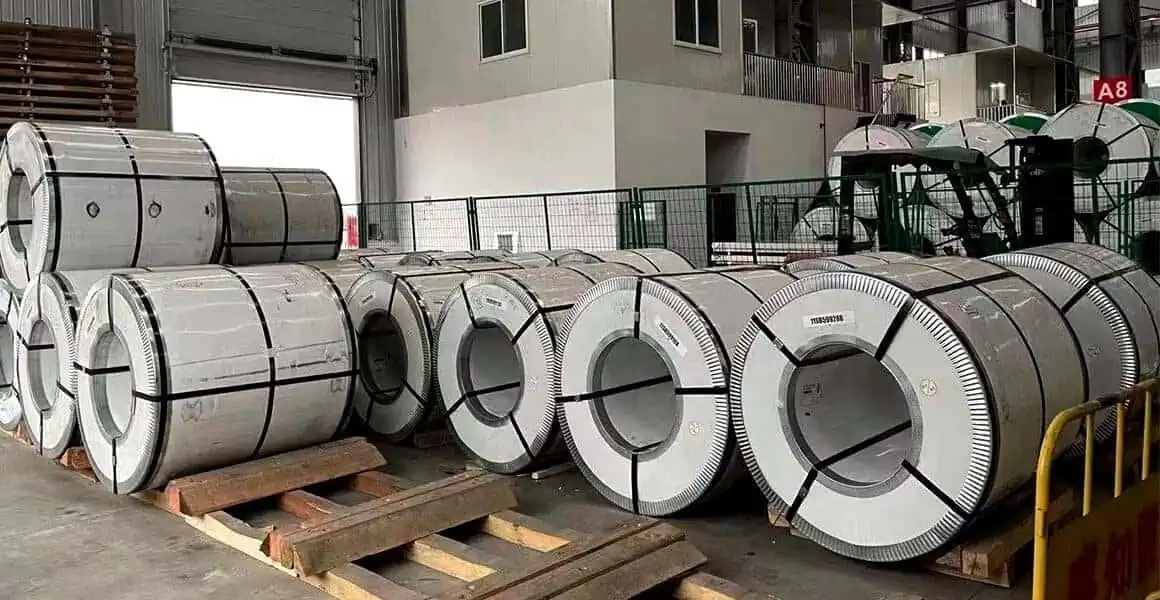
Is Stainless Steel Good For Industrial Applications?
Industrial purchasers seek materials that are robust, heat-resistant, and long-lasting, and stainless steel satisfies these standards flawlessly. Stainless steel coils perform admirably in industrial purposes due to their high tensile strength, résistance à la corrosion, and thermal stability.
Beyond fundamental durability, stainless steel has good formability and weldability, allowing it to be used in a variety of industrial applications such as tanks, pipelines, pressure vessels, and heat exchangers.
In high-temperature industries like petrochemical plants, power generation, et fabrication, stainless steel maintains its strength and oxidation resistance even at elevated temperatures (up to 870°C for 304 and 925°C for 316).
Acier inoxydable is also resistant to scaling, which means that it will maintain its mechanical properties and protective oxide layer even after repeated heating and cooling cycles. Par exemple, stainless steel coils used in vehicle exhaust systems must withstand significant temperature variations on a regular basis, yet high-grade stainless steel does not split, deform, or corrode.
En construction, stainless steel coils are typically used to make cladding, structural frames, and roofing materials that need both strength and a beautiful look for decades.
Thus, for industrial purchasers buying from China or elsewhere, stainless steel coils are a trustworthy and cost-effective investment when quality and compliance are paramount.

Does Stainless Steel Release Toxins When Heated?
Buyers are particularly concerned about whether stainless steel releases dangerous compounds at high temperatures in industrial or food-grade applications. Stainless steel is chemically stable at high temperatures and does not produce pollutants, making it one of the safest materials for use in warm conditions.
Acier inoxydable, unlike Teflon or PVC coatings, which can deteriorate and emit toxic vapors at low temperatures, stays inert even when exposed to intense heat.
According to studies, even at high temperatures, correctly made acier inoxydable does not leach chromium, nickel, or iron ions in proportions that pose a health danger. Grades such as 316L are designed with additional corrosion resistance to avoid ion migration.
En outre, regulatory bodies such as the United States Food and Drug Administration (FDA) and the European Food Safety Authority (EFSA) acknowledge some stainless steel grades as safe for extended food contact at high temperatures.
Cependant, poor manufacture, poor surface polish, or counterfeit grades might result in subpar goods that are less heat-resistant. As a result, it is critical to purchase stainless steel coils from recognized suppliers that can provide complete traceability and quality assurance paperwork.
If you come across topics like “Are stainless steel coils safe for vape” or similar questions on the internet, keep in mind that the danger occurs only if the improper alloy or low-quality material is utilized.

How Can I Ensure Stainless Steel Coil Quality?
Simply trusting suppliers is not enough. Buyers must actively seek to check the quality and safety of stainless steel coils.
Ensure coil safety by requiring mill test certificates (MTCs), verifying for surface flaws, and conducting uniform corrosion resistance testing. Mill Test Certificates (MTCs) include crucial information on the chemical composition, mechanical qualities, heat treatment techniques, and compliance with international standards like as ASTM, DANS, or JIS.
Conducting a third-party inspection before shipment is highly recommended, especially for large-volume orders. Inspections may include:
- Visual Inspection: Check for pitting, scratches, rust spots, and uniform surface finish.
- Chemical Analysis: Use portable spectrometers to confirm material grade on-site.
- Mechanical Testing: Verify tensile strength, yield strength, elongation, and hardness.
Smart buyers also conduct supplier audits, evaluating the manufacturer’s certifications (ISO 9001, ISO 14001, PED approval), production facilities, quality control systems, and customer feedback. For industries that require extremely high hygiene levels, additional tests such as ferrite content analysis and corrosion testing (par ex., salt spray tests) may be necessary.

Are Stainless Steel Coils Safe For Vaping And Food Industry?
Some purchasers may worry if stainless steel coils are solely suitable for industrial applications or whether they are appropriate for delicate industries such as vaping and food. Stainless steel coils are suitable for both vaping and food-grade applications, as long as they fulfill the appropriate material and manufacturing requirements.
In vaping devices, 316L stainless steel is frequently favored because it does not generate toxic fumes, even when heated in a coil arrangement. Compared to kanthal or nichrome wires, stainless steel delivers a cleaner taste and safer heating profile.
En outre, Bobines en acier inoxydable are required in food processing factories, breweries, and commercial kitchens. Food-grade stainless steel (304/316) is stain-resistant, easy to clean, and does not interact with food tastes, assuring customer safety.
Several international regulations govern the use of stainless steel in food environments, y compris:
- FDA Regulation 21 CFR 177.2600 (USA)
- European Framework Regulation EC 1935/2004 (EU)
- GB 4806.9-2016 (China food contact materials standard)
Thus, when sourcing stainless steel coils for sensitive applications, buyers must acquire food-grade or medical-grade certificates to assure complete compliance.
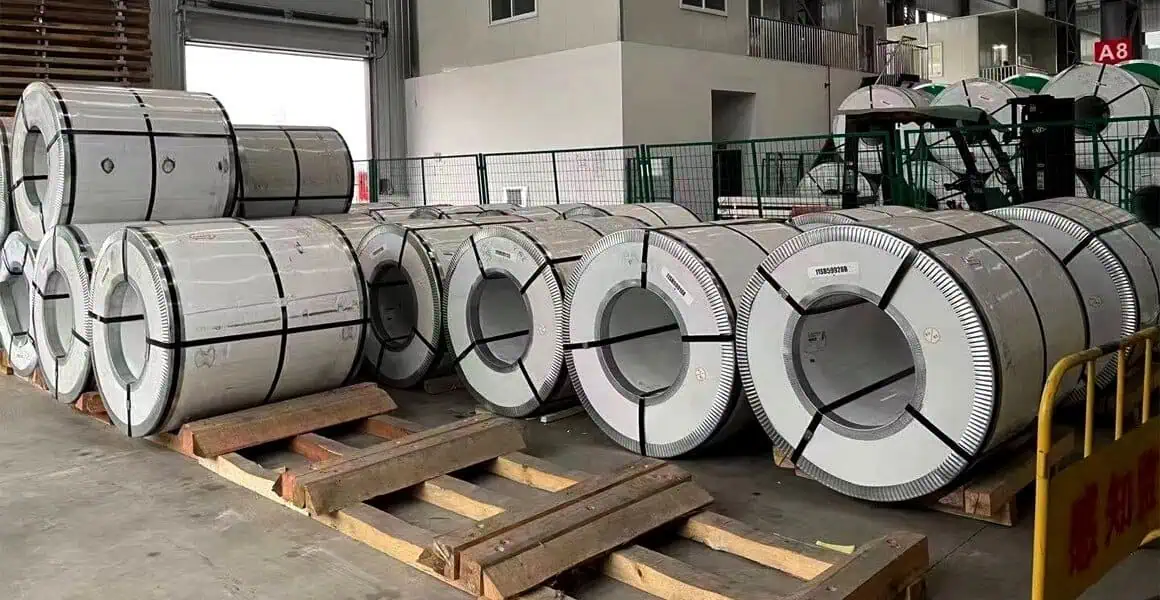
Common Mistakes When Sourcing Stainless Steel Coils
Even experienced purchasers might make expensive errors when acquiring stainless steel coils. Common blunders include disregarding certification, misidentifying steel grades, overlooking surface finishes, and failing to conduct supplier audits.
- Ignoring Certification: Always demand original certificates from reputable mills, not just sales promises or brochures.
- Misidentifying Steel Grades: Mistaking 201 for 304 can lead to severe corrosion in outdoor environments.
- Overlooking Surface Finishes: Different finishes like 2B, BA, or No.4 matter depending on application (par ex., decorative, hygienic, industriel).
- Neglecting Supplier Audits: A factory may promise 304 but deliver mixed material without proper checks.
Another typical danger is concentrating entirely on pricing. Cheaper stainless steel may indicate recycled material with unknown performance. Form long-term connections with reliable suppliers. Regular communication, inspection visits, and explicit purchase contracts with grades, tolerances, and certificates may significantly reduce risks.
Résumé
Stainless steel coils are typically safe, but adequate procurement, rigorous quality checks, supplier audits, and grade verification are essential for ensuring peak performance and avoiding hidden dangers.

